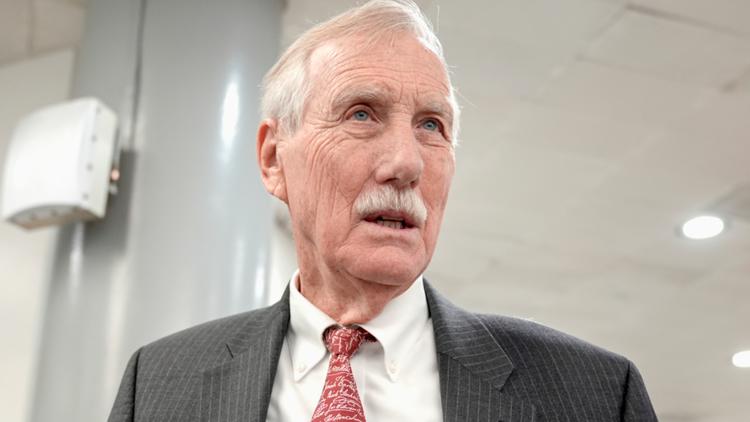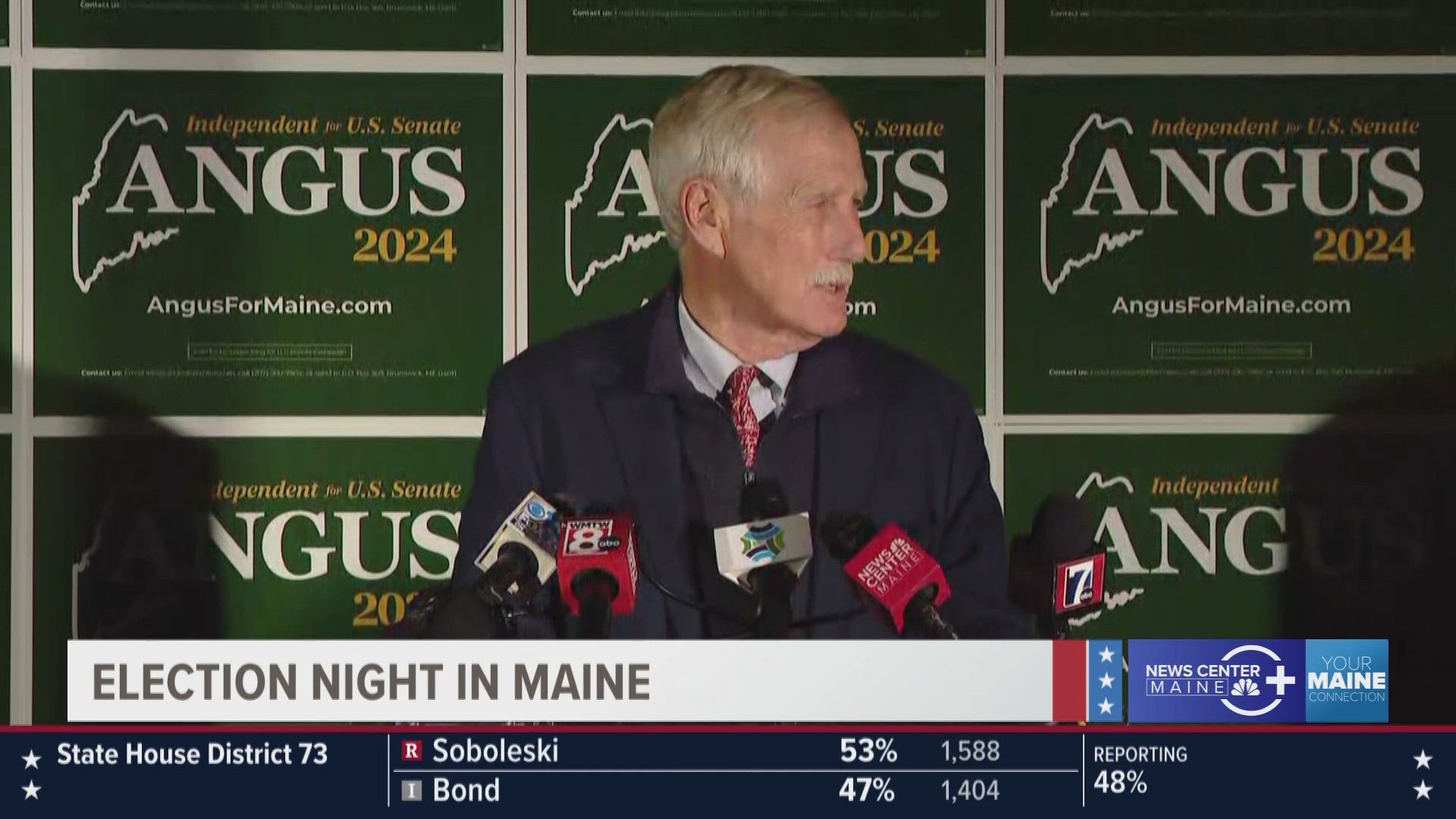PORTLAND, Maine — Independent Sen. Angus King was ahead in his bid for a third term in Maine early Wednesday, but with much of the vote yet to be counted, it was unclear whether ranked voting would be needed to decide the four-way race.
A candidate must receive a majority of votes under Maine’s ranked voting. If not, an extra voting round means a winner won’t be formally declared for a week under the system that allows voters to rank candidates in order on the ballot. Under the system, the last-place candidate is eliminated, those voters’ second-choices are applied, and votes are reallocated.
King, who was first elected to the Senate in 2012, said he can help bridge the gap in an increasingly divided Washington, expressing worry that “we’re losing the middle in the Senate.”
“I think I have a role to play to bridge the divide, to listen to people, to bring people together and to compromise to solve these difficult issues,” he said when he launched his reelection bid.
King was challenged by Republican Demi Kouzounas, a former GOP state chair, dentist and U.S. Army veteran, and Democrat David Costello, a former senior government official who led the Maryland Department of the Environment and the climate and clean energy program at the Natural Resources Council of Maine. Also in the race was another independent, Jason Cherry.
The 80-year-old former governor would be the oldest senator in state history if he completes the term ending in 2030, but he was not dogged during the campaign by questions about his age like President Joseph Biden was before stepping down as the Democratic presidential nominee.
King has survived a pair of cancer scares. He was treated for malignant melanoma — a skin cancer — at 29 and had surgery for prostate cancer in 2015.
In Washington, he is part of an increasingly small number of senators in the middle with the departure of Democratic Sens. Joe Manchin and Kyrsten Sinema, and Republican Sen. Mitt Romney.
King has long said he doesn’t want to be tied to any party, though he caucuses with Democrats, and that served him well in a state where independents used to represent the largest voting bloc. But both major parties have overtaken unenrolled voters in sheer numbers in recent years.



